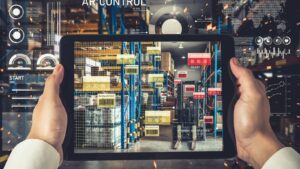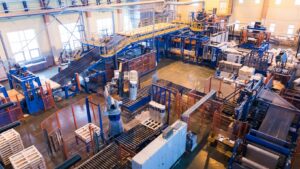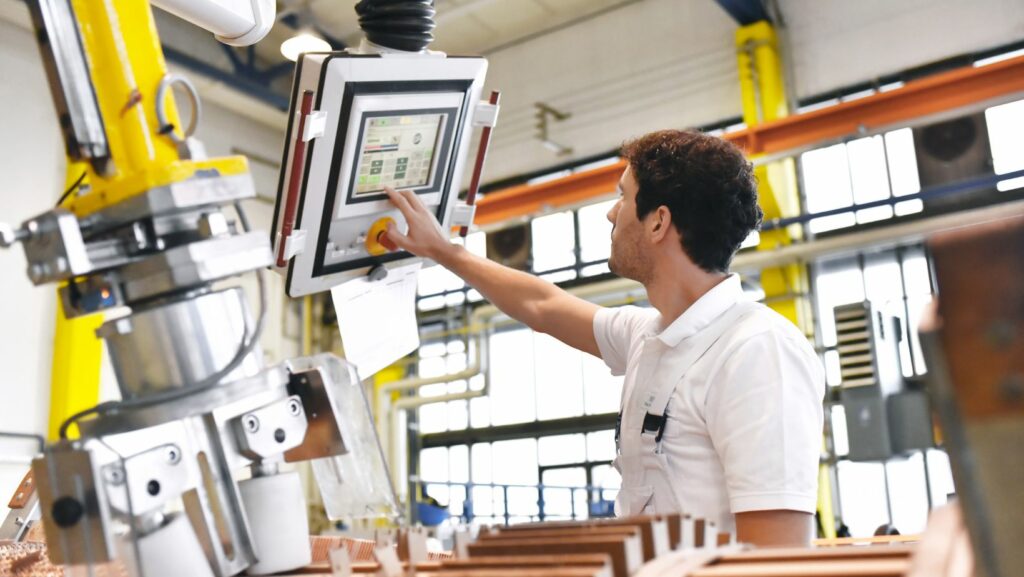In the fast-paced world of industry, manufacturing technology stands as the backbone of innovation, driving efficiency and productivity to unprecedented levels. This dynamic field, ever-evolving with the advent of new techniques and materials, shapes the way products are designed, produced, and distributed across the globe. From the integration of robotics on the factory floor to the precision of 3D printing, advancements in manufacturing technology are not just reshaping the production landscape; they’re revolutionizing it.
Manufacturing Technology
From Manual Methods to Automation
The transition from manual methods to automation represents a significant leap in manufacturing technology. In the past, production processes relied heavily on human labor, limiting the speed, accuracy, and volume of output. However, the introduction of automated machinery and systems has revolutionized the way products are made. Automation uses control systems, such as computers or robots, and information technologies for handling different processes and machinery in an industry to increase productivity and efficiency. This shift not only enhances production speeds but also improves product quality by reducing the margin for error that comes with manual tasks. Moreover, automation in manufacturing technology reduces labor costs, as machines can perform tasks that would otherwise require multiple workers, operating 24/7 without the need for breaks or shifts changes.
The Digital Revolution and Industry 4.0
 The digital revolution, culminating in Industry 4.0, marks a transformative phase in manufacturing technology, characterized by a fusion of technologies that blur the lines between the physical, digital, and biological spheres. At its core, Industry 4.0 integrates the Internet of Things (IoT), artificial intelligence (AI), big data, and cloud computing to create smart factories. These factories boast unprecedented levels of connectivity and automation, allowing for real-time monitoring and adjustment of manufacturing processes. This digital transformation enables predictive maintenance, virtual simulations, and additive manufacturing, such as 3D printing, to optimize production workflows and reduce downtime. The digital revolution empowers manufacturers to respond more flexibly and quickly to market changes and customer needs, paving the way for more customized and efficient production models. In embracing Industry 4.0, companies unlock the potential for significantly increasing operational efficiency and ushering in a new era of innovation in manufacturing technology.
The digital revolution, culminating in Industry 4.0, marks a transformative phase in manufacturing technology, characterized by a fusion of technologies that blur the lines between the physical, digital, and biological spheres. At its core, Industry 4.0 integrates the Internet of Things (IoT), artificial intelligence (AI), big data, and cloud computing to create smart factories. These factories boast unprecedented levels of connectivity and automation, allowing for real-time monitoring and adjustment of manufacturing processes. This digital transformation enables predictive maintenance, virtual simulations, and additive manufacturing, such as 3D printing, to optimize production workflows and reduce downtime. The digital revolution empowers manufacturers to respond more flexibly and quickly to market changes and customer needs, paving the way for more customized and efficient production models. In embracing Industry 4.0, companies unlock the potential for significantly increasing operational efficiency and ushering in a new era of innovation in manufacturing technology.
Key Components of Modern Manufacturing Technology
Building on the strides made by the adoption of robotics, 3D printing, and Industry 4.0, modern manufacturing technology encompasses several key components. These elements work together to further advance productivity, efficiency, and innovation in the manufacturing sector.
Automation and Robotics
Automation and robotics stand at the core of modern manufacturing technology, significantly enhancing production speed and accuracy. Robots perform tasks with precision and consistency, reducing errors and the time required for production processes. This integration not only optimizes operation but also cuts labor costs and minimizes human intervention in potentially hazardous environments.
Internet of Things (IoT) and Industry 4.0
At the heart of the digital revolution in manufacturing is the Internet of Things (IoT) and Industry 4.0. These technologies facilitate the creation of smart factories where machinery and equipment are interconnected and communicate in real-time. Such an ecosystem allows for predictive maintenance, reducing downtime and increasing overall operational efficiency.
By integrating these key components, the manufacturing sector strides toward a future where innovation, customization, and efficiency define the new standard of production. Through modern manufacturing technology, companies gain the agility and capability to meet the ever-changing demands of the global market.
Recent Innovations in Manufacturing Technology
 Artificial Intelligence (AI) and Machine Learning: AI and machine learning have become central to predictive maintenance, quality control, and supply chain management. Manufacturers now leverage these technologies to forecast equipment failures before they happen, ensuring uninterrupted production.
Artificial Intelligence (AI) and Machine Learning: AI and machine learning have become central to predictive maintenance, quality control, and supply chain management. Manufacturers now leverage these technologies to forecast equipment failures before they happen, ensuring uninterrupted production.
Internet of Things (IoT) Integration: IoT devices facilitate real-time monitoring of manufacturing operations, enabling smart factories to adjust workflows automatically. This integration enhances product quality and reduces waste.
Advanced Robotics: The deployment of advanced robotics, capable of performing complex tasks with high precision, continues to eliminate human error and reduce labor costs. These robots are now more collaborative, working alongside humans to increase safety and efficiency.
Additive Manufacturing: Additive manufacturing, or 3D printing, supports rapid prototyping and the production of complex geometries that were previously impossible or too expensive to manufacture. This technology offers manufacturers the flexibility to customize products on demand.


